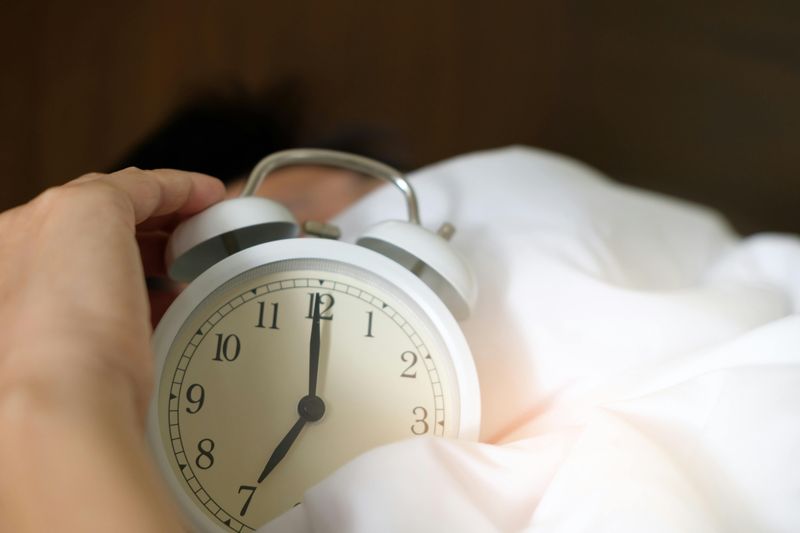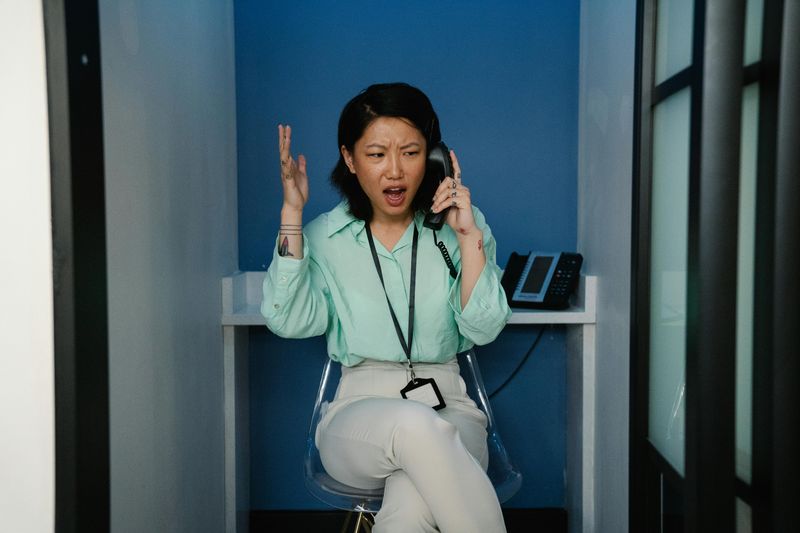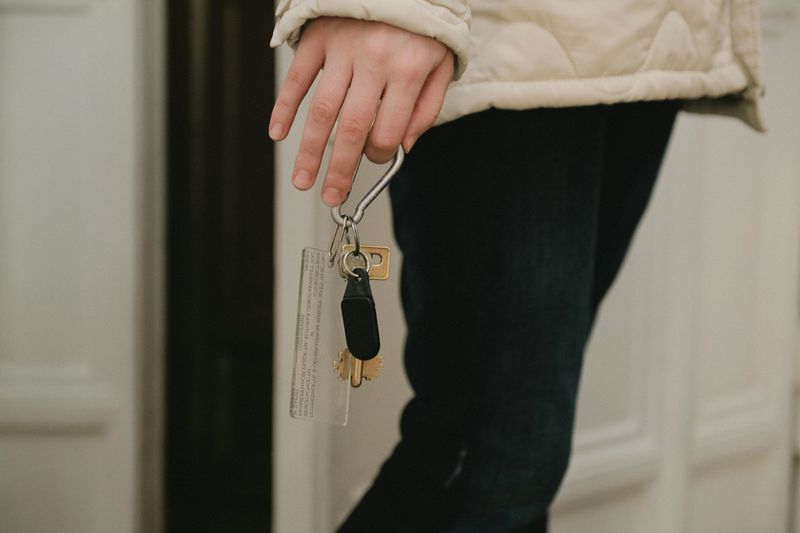14 Excuses Perpetually Late People Always Use

We all know that one person who’s never on time. Despite setting earlier meeting times or sending reminder texts, they still show up late with an excuse ready to go. Chronic tardiness affects work, friendships, and even family relationships. Here’s a look at the classic excuses perpetually late people use when they finally arrive.
1. “I lost track of time.”

The classic time-blindness defense appears when someone gets completely absorbed in an activity. Maybe they were deep in a Netflix binge or caught up in a creative project when suddenly—oops!—it’s 30 minutes past when they should have left.
This excuse often comes from people who genuinely struggle with time perception. They aren’t looking at clocks regularly, and their internal time sense simply isn’t reliable. For them, what feels like 10 minutes might actually be half an hour.
Setting multiple alarms or using time-blocking techniques can help these folks stay on schedule. But until they develop better time awareness, expect to hear this explanation frequently.
2. “Traffic was worse than I expected.”

The roadway excuse ranks among the most believable defenses in the late person’s arsenal. After all, who hasn’t experienced unexpected gridlock or construction delays? The problem is when someone uses this excuse repeatedly, despite commuting the same route daily.
Regular late arrivers often fail to build buffer time into their schedules. They calculate travel based on perfect conditions rather than realistic ones. A 20-minute drive might take 40 minutes during rush hour, yet they leave as if traffic doesn’t exist.
Weather changes, accidents, and road work happen regularly. Truly punctual people account for these possibilities rather than acting surprised when normal traffic patterns emerge.
3. “I had one last thing to finish before I left.”

The “just one more thing” syndrome strikes chronically late people frequently. They spot a quick email needing response, decide to quickly tidy up, or remember one last task—right as they should be walking out the door.
These seemingly small tasks create cascading delays. This habit reveals a prioritization problem. Late people often value completing immediate tasks over honoring time commitments. Their thinking goes: “I’ll just be five minutes late, but this task will be done!”
They don’t consider how their lateness impacts others waiting for them. Breaking this pattern requires recognizing that punctuality itself is a priority task, not something that happens after everything else gets done.
4. “I didn’t hear my alarm.”

Morning meetings suffer most from this particular excuse. The chronically late person stumbles in, coffee in hand, claiming their alarm failed them once again. Mysteriously, this technological malfunction seems to happen to the same people repeatedly.
Sleep specialists might point out that some folks genuinely sleep through alarms, especially if they’re sleep-deprived. However, the solution is straightforward: set multiple alarms, place the alarm across the room, or try apps that require solving puzzles to dismiss.
What’s really happening? Often it’s about not respecting morning commitments enough to establish proper evening routines. Going to bed too late makes morning alarms easier to ignore or sleep through.
5. “Something urgent came up at the last minute.”

The emergency excuse works wonderfully—the first few times. Real emergencies happen! But when someone’s life seems filled with constant last-minute crises preventing punctuality, patterns emerge.
Chronically late people often create their own emergencies through poor planning. They realize they’re out of gas right before leaving. They suddenly remember an important call they promised to make. Their dog suddenly needs an unscheduled bathroom break.
While some professions genuinely involve unpredictable emergencies, most last-minute crises are predictable with better planning.
6. “I thought I had more time.”

Chronic optimism about timeframes plagues the perpetually tardy. They consistently underestimate how long tasks take, believing they can shower, dress, eat breakfast, and drive across town—all in 30 minutes flat. Reality never matches these fantasy timelines.
Time management experts call this the “planning fallacy.” We humans naturally underestimate task duration, but punctual people compensate by adding buffer time. Late people don’t learn from past experiences, continuing to believe they can beat the clock.
The solution involves timing regular activities honestly. How long does your morning routine actually take? How much time do you really need to get from home to work? Once faced with real data, time-optimists might finally adjust their schedules.
7. “I couldn’t find my keys/phone/wallet.”

The lost essentials excuse reveals a deeper organizational problem. While anyone occasionally misplaces items, chronically late people turn this into a daily treasure hunt. Keys hide in coat pockets, wallets vanish under couch cushions, and phones go mysteriously silent.
This pattern often indicates a lack of consistent systems. Organized people have designated spots for essential items—a hook by the door for keys, a charging station for phones. They create habits that prevent the frantic morning search.
For the perpetually tardy, establishing a “landing zone” near the entrance can help break this cycle. Everything needed for departure goes there immediately upon returning home, creating one predictable location instead of a house-wide scavenger hunt.
8. “I underestimated how long it would take to get here.”

Distance perception problems plague many tardy folks. They calculate travel time based on perfect conditions—no traffic, all green lights, and instantly finding parking. Reality rarely cooperates with these optimistic projections.
Late arrivers often focus solely on the driving portion without considering the full journey. They forget about finding parking, walking from the parking lot, navigating building elevators, or locating the specific meeting room.
Each step adds minutes that weren’t factored into their timeline. Modern technology offers solutions through map apps that provide realistic arrival estimates. Yet even with these tools, chronically late people still leave at the last possible moment, giving themselves zero margin for unexpected delays.
9. “I had to help someone before I could leave.”

The hero excuse makes tardiness sound noble. They were just helping their elderly neighbor, assisting a coworker, or solving their roommate’s crisis! How could anyone fault such generosity?
While genuinely helping others is commendable, chronically late people often use assistance as justification without considering time management. They struggle with boundaries, saying yes to requests without considering existing commitments.
The person waiting for them becomes the lower priority. Kind people can still be punctual by offering alternative help times: “I can’t help right now because I have a meeting, but I can assist you afterward.”
10. “Public transport was delayed.”

The transit alibi works well in cities with notoriously unreliable systems. Buses run late, trains experience technical difficulties, and subway delays happen. For the occasionally tardy person, this excuse seems perfectly reasonable.
Habitually late commuters, however, fail to build delay-time into their schedules. While punctual transit users check schedules, plan for earlier connections, or have backup routes ready, the chronically late person plans for best-case scenarios every time.
Regular transit delays aren’t surprises—they’re predictable parts of urban life. Consistently punctual commuters might aim for a train or bus earlier than strictly necessary, knowing that even if everything runs perfectly, arriving a bit early is better than being late again.
11. “I needed a few extra minutes to get ready.”

The perfectionist’s defense suggests they simply couldn’t leave without everything being just right. Their hair needed one more styling attempt. Their outfit required a last-minute change. Their makeup demanded additional attention.
This excuse reveals a prioritization problem—personal appearance over punctuality. While looking presentable matters in professional contexts, chronically late people often cross into perfectionism territory, making others wait while they achieve an ideal look.
The solution involves deciding what truly matters for each occasion. A job interview might justify extra preparation time (scheduled in advance), while meeting friends for coffee doesn’t require magazine-perfect styling. Setting preparation time limits helps convert this particular late-maker into a punctual person.
12. “I got caught up in a conversation or task.”

The distraction explanation happens when someone loses themselves completely in an activity. They became so engrossed in a phone conversation, work project, or household task that time simply vanished. Suddenly they realize they’re running significantly behind schedule.
This excuse often comes from people who hyperfocus—diving so deeply into activities that they lose awareness of their surroundings. While this intense concentration can be productive, it becomes problematic when it regularly interferes with commitments.
Setting timers or calendar alerts can help these folks maintain time awareness during engaging activities. The challenge isn’t starting the timer—it’s actually stopping when the alarm sounds rather than thinking, “Just five more minutes” (which inevitably becomes twenty).
13. “I didn’t realize what time it was.”

The time-awareness excuse reveals a fundamental disconnect between the late person and clocks. Despite smartphones, watches, and time displays on nearly every electronic device, they somehow missed all these indicators.
This excuse differs slightly from “losing track of time”—it suggests they weren’t tracking time at all. Some chronically late people actually avoid checking the time when they suspect they’re running behind. They enter a state of temporal denial, preferring not to confront their lateness until it’s unavoidable.
Addressing this pattern requires creating unavoidable time awareness. Setting loud alarms, requesting check-in texts from friends, or using apps that announce the time periodically can help reconnect these time-blind individuals with the clock-governed world.
14. “My kids made us run behind schedule.”

The parental plea earns sympathy from fellow caregivers who understand the unpredictability of children. Kids spill juice on their clothes right before leaving.
They suddenly need bathroom breaks after getting buckled into car seats. They misplace essential items or have last-minute meltdowns.
While children genuinely create unpredictable delays, consistently late parents often fail to build child-chaos time into their schedules. They plan as if getting children ready follows the same timeline as preparing just themselves—a rookie parenting mistake.
Experienced, punctual parents develop systems—laying out clothes the night before, keeping duplicate essentials in the car, and adding a generous 20-30 minute buffer to any departure time involving children. They expect the unexpected rather than being surprised by it.

Comments
Loading…